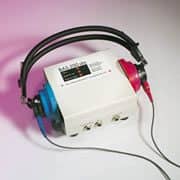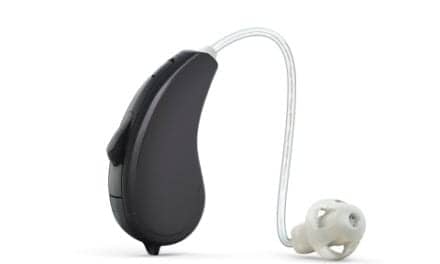The Over the Counter Hearing Aid Act—part of the Food and Drug Administration Reauthorization Act of 2017 signed into law by President Donald Trump on August 18, 2017—will allow adults with perceived mild-to-moderate hearing loss to access over-the-counter (OTC) hearing aids without first seeing a hearing care professional.
The law was introduced in March by Senators Elizabeth Warren (D-Mass) and Chuck Grassley (R-Iowa), and was passed by the US House on July 12 and the US Senate on August 3.
Following the announcement of the passage of the legislation into law, several organizations released statements supporting the bill.
In a press statement, the Consumer Technology Association’s (CTA) President and CEO, Gary Shapiro, said, “Thanks to President Trump signing the FDA Reauthorization bill into law—which includes language to create a new class of over-the-counter (OTC) hearing aids—consumers with mild-to-moderate hearing loss will no longer be at the mercy of companies selling expensive and cost-prohibitive hearing aids that cost thousands of dollars. Instead, 40 million Americans living with hearing loss in the future can buy over-the-counter hearing aids at roughly one-tenth of what traditional hearing aids costs.”
CTA has been advocating for a quality assurance logo that would signify compliance to a voluntary performance standard, helping consumers make informed choices about OTC hearing devices.
The National Institute of Deafness and Other Communication Disorders (NIDCD) praised the bill for being consistent with a recommendation from the National Academies of Sciences, Engineering, and Medicine (NASEM)’s July 2016 report regarding a separate, FDA-regulated category for OTC hearing devices.
“We were proud to support a recent consensus study by the National Academies of Sciences, Engineering, and Medicine (NASEM) on ‘Hearing Health Care for Adults: Priorities for Improving Access and Affordability’,” said NIDCD Director James F. Battey, Jr., MD, PhD, in a press statement. “…the study concluded that the diverse needs of adults with hearing loss were not being met. One of the independent panel’s 12 recommendations to improve hearing health care is for the FDA to implement a new category of OTC hearing devices. H.R. 2430 directs the FDA to establish new guidelines and quality standards within the next three years. The law was passed just 14 months after the NASEM panel released its report.”
The FDA is now tasked with creating an OTC category for adults with “perceived” mild-to-moderate hearing loss that meets the same standards for safety, consumer labeling, and manufacturing protection that all medical devices must meet. The category must be established within the next 3 years, and rules must be finalized within 180 days after closure of the comment period.
Hearing Review has covered the OTC legislation extensively. For more articles related to this topic, click here.
Source: CTA, NIDCD





